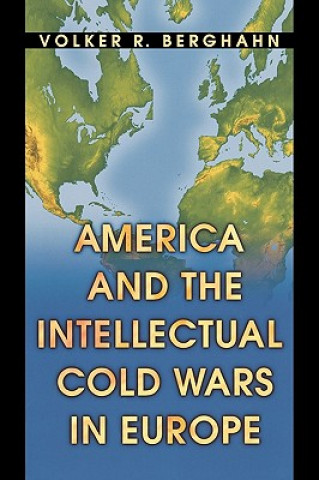
Doručení
Nákupní rádce





Nehodí se? Vůbec nevadí! U nás můžete do 30 dní vrátit
 Dárkový poukaz
V libovolné hodnotě
Dárkový poukaz
V libovolné hodnotě
S dárkovým poukazem nešlápnete vedle. Obdarovaný si za dárkový poukaz může vybrat cokoliv z naší nabídky.
America and the Intellectual Cold Wars in Europe
 Angličtina
Angličtina
 139 b
139 b
30 dní na vrácení zboží
Mohlo by vás také zajímat


In 1958, Shepard Stone, then directing the Ford Foundation's International Affairs program, suggested that his staff "measure" America's cultural impact in Europe. He wanted to determine whether efforts to improve opinions of American culture were yielding good returns. Taking Stone's career as a point of departure and frequent return, Volker Berghahn examines the triangular relationship between the producers of ideas and ideologies, corporate America, and Washington policymakers at a peculiar juncture of U.S. history. He also looks across the Atlantic, at the Western European intellectuals, politicians, and businessmen with whom these Americans were in frequent contact. While shattered materially and psychologically by World War II, educated Europeans did not shed their opinions about the inferiority, vulgarity, and commercialism of American culture.American elites - particularly the East Coast establishment - deeply resented this condescension. They believed that the United States had two culture wars to win: one against the Soviet Bloc as part of the larger struggle against communism and the other against deeply rooted negative views of America as a civilization. To triumph, they spent large sums of money on overt and covert activities, from tours of American orchestras to the often secret funding of European publications and intellectual congresses by the CIA. At the center of these activities were the Ford Foundation, the Congress for Cultural Freedom, and Washington's agents of cultural diplomacy.This was a world of Ivy League academics and East Coast intellectuals, of American philanthropic organizations and their backers in big business, of U.S. government agencies and their counterparts across the Atlantic. This book uses Shepard Stone as a window to this world in which the European-American relationship was hammered out in cultural terms - an arena where many of the twentieth century's major intellectual trends and conflicts unfolded.
Informace o knize
 Angličtina
Angličtina




 Jak nakupovat
Jak nakupovat
























